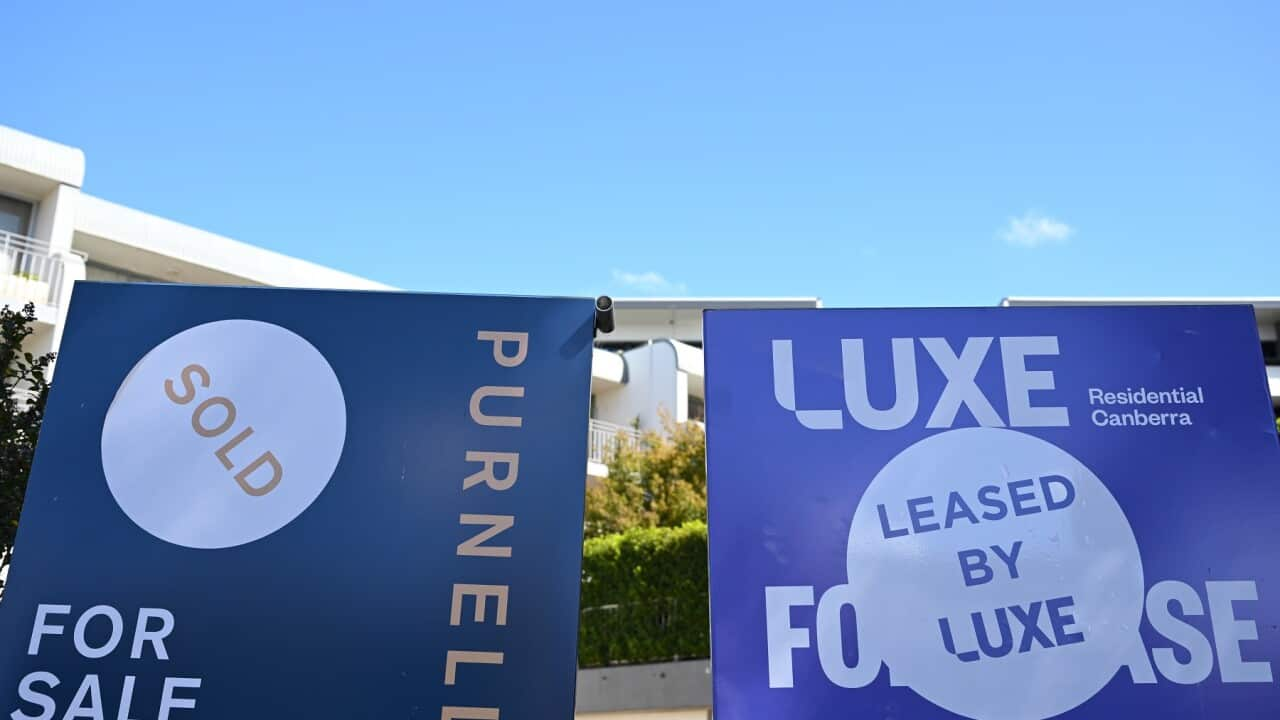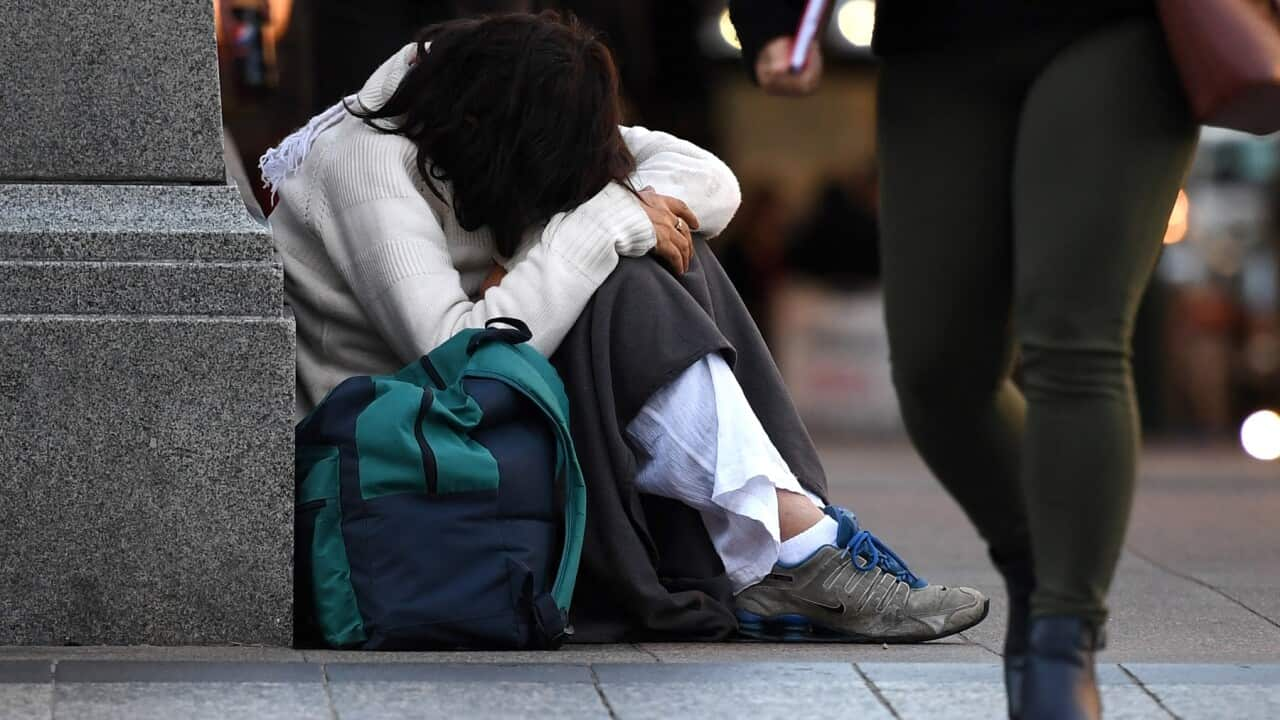TRANSCRIPT:
Housing affordability in Australia is already at crisis levels.
But the first report from the National Housing Supply and Affordability Council, established in December 2023 to provide expert advice, has found it's set to deteriorate even further over the next six years.
The Opposition's housing spokesperson, Michael Sukkar, says the report proves how bad it has become.
"Housing has never been worse in Australia. Whether you're trying to purchase your first home it's never been harder. Whether you're trying to find a rental, it's never been harder."
The Council's report paints a grim picture of the situation across every Australian state and territory, and blames insufficient supply as being at the heart of the issue.
It says that while vacancies are at an all time low, prices and rents are being pushed up at a rate far faster than wages are growing.
Only 13 per cent of homes sold in 2022-23 were affordable for a household earning the median income.
The crisis is being made worse by rising interest rates, skills shortages, inflation, and the high cost of construction.
Denita Wawn is C-E-O of Master Builders Australia, the organisation representing the construction industry.
Ms Wawn is frustrated by a number of factors she says are impediments to improving supply, including reforms to industrial relations, the rising cost of materials, and labour shortages.
Last month, a report by BuildSkills Australia found the country would need to attract 90,000 new construction workers into the sector by the start of July for the government to meets its target.
Denita Wawn says not enough is being done to promote the industry.
"We have for successive decades in this country put universities as a preference over trade qualifications which we think is unfair and treating tradies as second-class citizens. We have to recognise that parents, educators and students all need to be better informed of the opportunities in a trade, and certainly from our perspective, A-I won't be taking over trade work any time soon, in comparison to some university qualifications."
The report has predicted that by the 2028/29 financial year, Australia will still be 39,000 dwellings short.
It's found the government is unlikely to meet its commitment of 1.2 million new homes as outlined in the National Housing Accord, which Labor has promoted as part of the answer to supply.
The Council says only 943,000 dwellings are likely to be built between now and June 2029.
That means the government will be unable to address the unmet demand already in the housing system, including at least 122,000 Australians currently experiencing homelessness.
Greens housing spokesperson Max Chandler-Mather says Labor hasn't done enough to help people be properly housed.
"On basically every measure Labor is catastrophically failing: the lowest proportion of public housing on record, the highest costs on housing for households on record. We have got a devastating housing crisis and our housing system in Australia is fundamentally broken."
But federal Housing Minister Julie Collins is framing the issues raised in the report as an opportunity.
"What the report does is show the very significant challenges we have in Australia's housing system. What it also is though is an opportunity for us to change. We've started that change already. We know there's more to do. We know we need to be ambitious, and we are ambitious. We want to turn around Australia's housing system and we've already started that work. We've now committed to more than $25 billion in new investments over the next decade since we came to office."
Low-income earners, young people, those with disabilities, First Nations Australians and people fleeing domestic and family violence have been hit hardest by the affordability crisis.
The Coalition has suggested Labor should curb migration as part of their response to the issue.
But Haitham Subhi, from Settlement Services International, says that's not the answer.
S-S-I is tasked with resettling thousands of newly arrived refugees each year.
An Essential Research poll conducted for the group has found more than a quarter (26 per cent) had been forced to leave a property due to rising housing costs in the past year.
Mr Subhi says migrants and refugees are among those who are finding it harder to put a roof over their heads, and that they are often "at the bottom of the list" because they can't demonstrate rental history in Australia.
"Of course they will be competing against more stronger applications against average Aussie families, where they have to show they have stable income, rental history, employment history. Another factor is the language barrier. We could even see it during the house inspections or open house inspections, where our people (migrants and refugees) they pretty much get the stigma around 'I'm not going to give you the property, because I'm concern that you won't be able to communicate clearly in English'."
Mr Subhi says migrants are also still unfairly blamed as the main cause of the housing crisis.
"It's just the media coverage, to be honest, and this negative perception which is incorrect. We (have) worked with thousands of migrants and refugees over the years. Pre-Covid there were no issues at all, because there was enough supply in the market. The current crisis is not only in metropolitan cities, it's happening in regional (areas) and even more globally. So they cannot be blamed for this crisis. It's actually - they are paying the price for being victimised and staying longer term in short-term accommodation and traditional homes, just waiting for their initial accommodation to be approved."
The Council has recommended governments focus on 10 areas, including investing in social housing, reducing homelessness, improving the rental market, bolstering planning systems and ensuring the tax system supports supply.
Experts have also called for the private rental market to be regulated with input and enforcement from industry bodies.
With the federal budget due to be delivered in under two weeks ((on 14 May)) it remains to be seen what the government does next to address the crisis.













